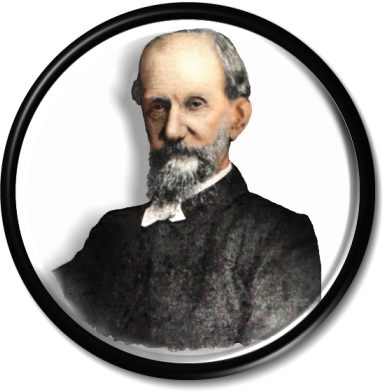 Today’s excerpt is from the book Humility by Andrew Murray. I read it a long time ago. It made a great impact on me and I thought I would share just a portion here today. It is a great book but — I warn you — do not read it unless you are prepared to be challenged. This book shows that our narrow definitions of pride and humility are really not accurate. Are you a humble or a proud person? You may be surprised at the answer, as this portion of the book will show:
Today’s excerpt is from the book Humility by Andrew Murray. I read it a long time ago. It made a great impact on me and I thought I would share just a portion here today. It is a great book but — I warn you — do not read it unless you are prepared to be challenged. This book shows that our narrow definitions of pride and humility are really not accurate. Are you a humble or a proud person? You may be surprised at the answer, as this portion of the book will show:
The humble man seeks at all times to act up to the rule, “In honor preferring one another; Servants one of another; Each counting others better than himself; Subjecting yourselves one to another.” The question is often asked, how can we count others better than ourselves, when we see that they are far below us in wisdom and in holiness, in natural gifts, or in grace received. The question proves at once how little we understand what real lowliness of mind is. True humility comes when, in the light of God, we have seen ourselves to be nothing, have consented to part with and cast away self, to let God be all.The soul that has done this, and can say, “So have I lost myself in finding Thee,” no longer compares itself with others. It has given up forever every thought of self in God’s presence; it meets its fellow-men as one who is nothing, and seeks nothing for itself; who is a servant of God, and for His sake a servant of all. A faithful servant may be wiser than the master, and yet retain the true spirit and posture of the servant.The humble man looks upon every, the feeblest and unworthiest, child of God, and honors him and prefers him in honor as the son of a King. The spirit of Him who washed the disciples’ feet, makes it a joy to us to be indeed the least, to be servants one of another.
The humble man feels no jealousy or envy. He can praise God when others are preferred and blessed before him. He can bear to hear others praised and himself forgotten, because in God’s presence he has learnt to say with Paul, “I am nothing.” He has received the spirit of Jesus, who pleased not Himself, and sought not His own honor, as the spirit of his life.
Amid what are considered the temptations to impatience and touchiness, to hard thoughts and sharp words, which come from the failings and sins of fellow-Christians, the humble man carries the oft-repeated injunction in his heart, and shows it in his life, “Forbearing one another, and forgiving one another, even as the Lord forgave you.”He has learnt that in putting on the Lord Jesus he has put on the heart of compassion, kindness, humility, meekness, and long-suffering. Jesus has taken the place of self, and it is not an impossibility to forgive as Jesus forgave. His humility does not consist merely in thoughts or words of self-depreciation, but, as Paul puts it, in “a heart of humility,” encompassed by compassion and kindness, meekness and long-suffering,—the sweet and lowly gentleness recognized as the mark of the Lamb of God.
In striving after the higher experiences of the Christian life, the believer is often in danger of aiming at and rejoicing in what one might call the more human, the manly, virtues, such as boldness, joy, contempt of the world, zeal, self-sacrifice,—even the old Stoics taught and practised these,—while the deeper and gentler, the diviner and more heavenly graces, those which Jesus first taught upon earth, because He brought them from heaven; those which are more distinctly connected with His cross and the death of self,—poverty of spirit, meekness, humility, lowliness,—are scarcely thought of or valued. Therefore, let us put on a heart of compassion, kindness, humility, meekness, longsuffering; and let us prove our Christ-likeness, not only in our zeal for saving the lost, but before all in our intercourse with the brethren, forbearing and forgiving one another, even as the Lord forgave us.
—Humility, by Andrew Murray
